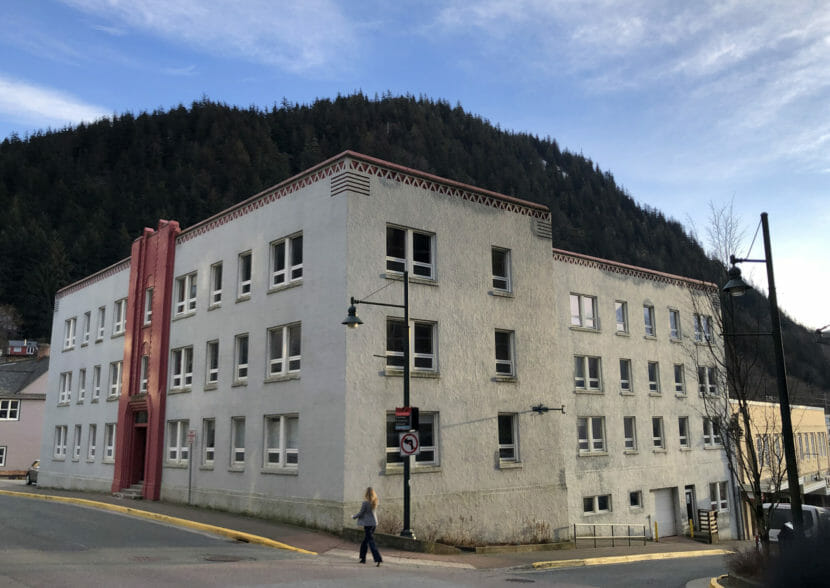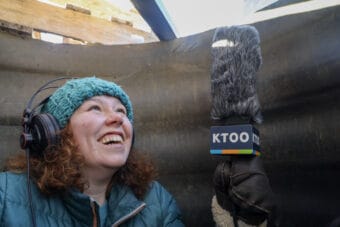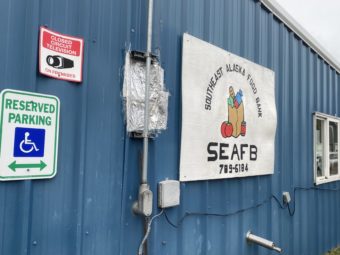
A House-Senate committee of the Alaska Legislature has approved spending $6.6 million to renovate a downtown Juneau office building into 33 apartments for legislators and staff.
During a Monday vote on the proposal, lawmakers said the state-owned building will help alleviate a chronic shortage of housing in the capital city during the legislative session.
“One of the biggest challenges we have is housing,” said Sen. Bert Stedman, R-Sitka.
“I think this is the right move,” he said.
The cost of construction is also being subsidized by a Juneau-based foundation whose goal, at least partially, is to keep Juneau as the state capital.
The Assembly Building, built in 1932, will be the Legislature’s new apartment building. Located kitty-corner to the Capitol, it was originally constructed as an apartment complex but was converted into offices in the 1980s.
Renovations are expected to take a minimum of one year, with a tentative completion date in January 2024. It isn’t yet clear how the building will be managed, who will be allowed to rent space, or whether legislators will forgo their per diem expense payments if they have a state-owned apartment.
In 2022, legislators were eligible for $307 per legislative day to cover food, housing and other expenses during the legislative session. Those payments came atop their annual salary of $50,400.
The 9-2 vote by the Legislative Council to move ahead with the apartment plan passed with Republicans, Democrats and independents voting in support.
Republican Rep. Cathy Tilton, R-Wasilla, and Sen. Mike Shower, R-Wasilla, voted against it.
“I really am not a fan of the Legislature being in the business of being a landlord and competing with the private sector,” Tilton said.
Shower said he is worried about the project’s rising costs. In February, the Legislative Council voted 9-5 in favor of a $5.5 million plan based on preliminary estimates. The final contract, with Dawson Construction, is worth almost $8.6 million.
The Juneau Community Foundation, which bought the building in 2021 and donated it to the Legislature at no cost, is also donating $2 million to pay for part of the building’s renovation, lowering the Legislature’s share to the $6.6 million approved this week.
“Juneau benefits by being the capital city. It fills our restaurants, it brings in people,” said Amy Skilbred, executive director of the $70 million foundation.
In 2014, the wealthy owner of Juneau’s electric company, Alaska Electric Light and Power, sold the business and donated most of the proceeds to the foundation. One of the conditions of that donation was the creation of the Juneau Capitol Fund, which is intended to support the Capitol as long as it remains in Juneau.
Skilbred said purchasing the Assembly Building is in line with the fund’s goals.
Legislators and staff have found it difficult to find housing, she said, because tourist season begins in May, compressing the market for short-term rentals at the end of the legislative session.
The problems are exacerbated if the Legislature calls special sessions in the summer.
“When they are called back, it’s hard to find housing both during and after session,” Skilbred said.
Garrett Schoenberger, a Juneau real estate agent and developer, said the price of the renovation is “high, but it’s not surprising.”
“I’d say that’s probably in line with just the craziness of today’s construction pricing,” he said.
Plans published in February call for 15 one-bedroom apartments and 18 studio apartments with a common laundry on each floor.
Juneau, like most of Alaska’s towns and cities, is experiencing a severe housing shortage, and the city’s downtown has a large number of commercial buildings with disused upper-floor apartments.
Shoenberger said renovating the Assembly Building is “a net gain for our community” and said he hopes it will inspire others to take similar action.
“It’s a welcomed addition,” he said.
This story originally appeared in the Alaska Beacon and is republished here with permission.



